Recommended Books
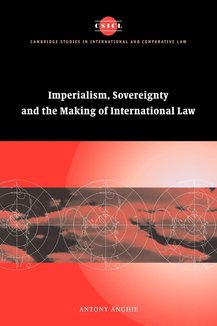
Imperialism, Sovereignty and the Making of International Law (Cambridge Studies in International and Comparative Law, Series Number 37)
Author:
Antony Anghie
ISBN 13:
978-0521702720
This book argues that the colonial confrontation was central to the formation of international law and, in particular, its founding concept, sovereignty. Traditional histories of the discipline present colonialism and non-European peoples as peripheral concerns. By contrast, Anghie argues that international law has always been animated by the 'civilizing mission' - the project of governing non-European peoples, and that the economic exploitation and cultural subordination that resulted were constitutively significant for the discipline. In developing these arguments, the book examines different phases of the colonial encounter, ranging from the sixteenth century to the League of Nations period and the current 'war on terror'. Anghie provides a new approach to the history of international law, illuminating the enduring imperial character of the discipline and its continuing importance for peoples of the Third World. This book will be of interest to students of international law and relations, history, post-colonial studies and development studies.
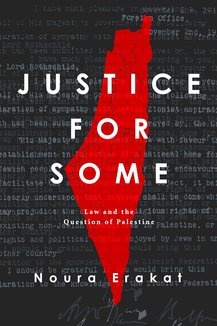
Justice for Some: Law and the Question of Palestine
Author:
Noura Erakat
ISBN 13:
978-1503613577
Justice in the Question of Palestine is often framed as a question of law. Yet none of the Israel-Palestinian conflict's most vexing challenges have been resolved by judicial intervention. Occupation law has failed to stem Israel's settlement enterprise. Laws of war have permitted killing and destruction during Israel's military offensives in the Gaza Strip. The Oslo Accord's two-state solution is now dead letter. Justice for Some offers a new approach to understanding the Palestinian struggle for freedom, told through the power and control of international law. Focusing on key junctures―from the Balfour Declaration in 1917 to present-day wars in Gaza―Noura Erakat shows how the strategic deployment of law has shaped current conditions. Over the past century, the law has done more to advance Israel's interests than the Palestinians'. But, Erakat argues, this outcome was never inevitable. Law is politics, and its meaning and application depend on the political intervention of states and people alike. Within the law, change is possible. International law can serve the cause of freedom when it is mobilized in support of a political movement. Presenting the promise and risk of international law, Justice for Some calls for renewed action and attention to the Question of Palestine.
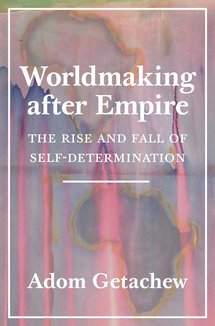
Worldmaking after Empire: The Rise and Fall of Self-Determination
Author:
Adom Getachew
ISBN 13:
978-0691202341
Decolonization revolutionized the international order during the twentieth century. Yet standard histories that present the end of colonialism as an inevitable transition from a world of empires to one of nations―a world in which self-determination was synonymous with nation-building―obscure just how radical this change was. Drawing on the political thought of anticolonial intellectuals and statesmen such as Nnamdi Azikiwe, W.E.B Du Bois, George Padmore, Kwame Nkrumah, Eric Williams, Michael Manley, and Julius Nyerere, this important new account of decolonization reveals the full extent of their unprecedented ambition to remake not only nations but the world. Adom Getachew shows that African, African American, and Caribbean anticolonial nationalists were not solely or even primarily nation-builders. Responding to the experience of racialized sovereign inequality, dramatized by interwar Ethiopia and Liberia, Black Atlantic thinkers and politicians challenged international racial hierarchy and articulated alternative visions of worldmaking. Seeking to create an egalitarian postimperial world, they attempted to transcend legal, political, and economic hierarchies by securing a right to self-determination within the newly founded United Nations, constituting regional federations in Africa and the Caribbean, and creating the New International Economic Order. Using archival sources from Barbados, Trinidad, Ghana, Switzerland, and the United Kingdom, Worldmaking after Empire recasts the history of decolonization, reconsiders the failure of anticolonial nationalism, and offers a new perspective on debates about today’s international order.
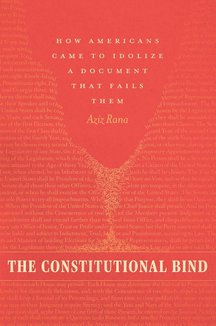
The Constitutional Bind: How Americans Came to Idolize a Document That Fails Them
Author:
Aziz Rana
ISBN 13:
978-0226350721
An eye-opening account of how Americans came to revere the Constitution and what this reverence has meant domestically and around the world. Some Americans today worry that the Federal Constitution is ill-equipped to respond to mounting democratic threats and may even exacerbate the worst features of American politics. Yet for as long as anyone can remember, the Constitution has occupied a quasi-mythical status in American political culture, which ties ideals of liberty and equality to assumptions about the inherent goodness of the text’s design. The Constitutional Bind explores how a flawed document came to be so glorified and how this has impacted American life. In a pathbreaking retelling of the American experience, Aziz Rana shows that today’s reverential constitutional culture is a distinctively twentieth-century phenomenon. Rana connects this widespread idolization to another relatively recent development: the rise of US global dominance. Ultimately, such veneration has had far-reaching consequences: despite offering a unifying language of reform, it has also unleashed an interventionist national security state abroad while undermining the possibility of deeper change at home. Revealing how the current constitutional order was forged over the twentieth century, The Constitutional Bind also sheds light on an array of movement activists—in Black, Indigenous, feminist, labor, and immigrant politics—who struggled to imagine different constitutional horizons. As time passed, these voices of opposition were excised from memory. Today, they offer essential insights.
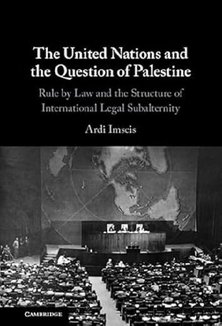
The United Nations and the Question of Palestine: Rule by Law and the Structure of International Legal Subalternity
Author:
Ardi Imseis
ISBN 13:
978-1316513897
Contrary to conventional wisdom, there has been a continuing though vacillating gulf between the requirements of international law and the UN on the question of Palestine. This book explores the UN's management of the longest-running problem on its agenda, critically assessing tensions between the organization's position and international law. What forms has the UN's failure to respect international law taken, and with what implications? The author critically interrogates the received wisdom regarding the UN's fealty to the international rule of law, in favour of what is described as an international rule by law. This book demonstrates that through the actions of the UN, Palestine and its people have been committed to a state of what the author calls 'international legal subalternity', according to which the promise of justice through international law is repeatedly proffered under a cloak of political legitimacy furnished by the international community, but its realization is interminably withheld.